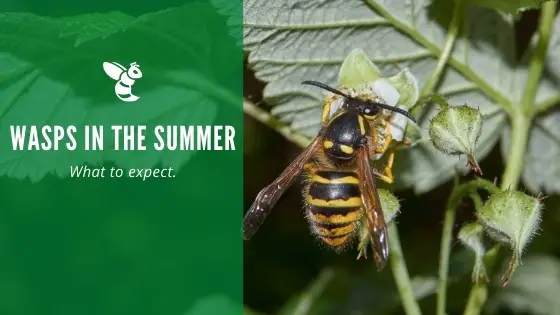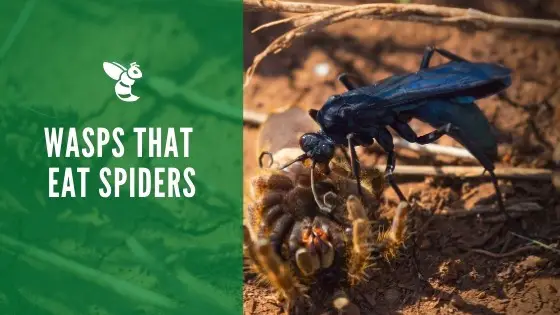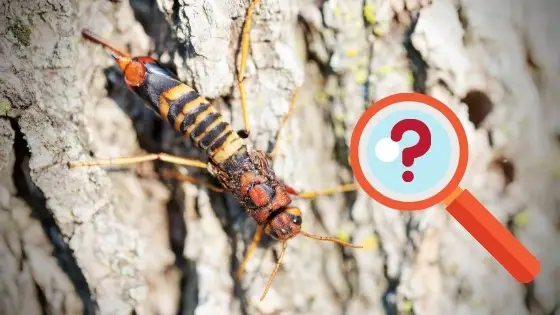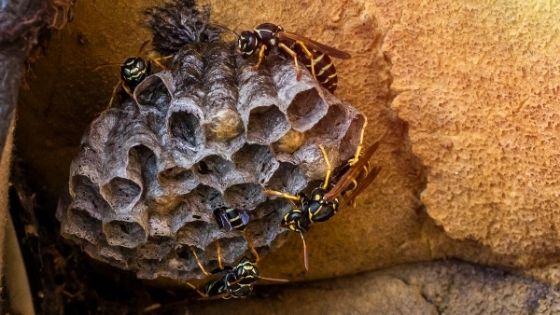Wasps in the Summer: What to Expect

Have you ever wondered what happens to wasps during the winter? These vile insects buzz around all summer long, swarming picnics and ruining days at the park. Then like magic, they start to disappear once the weather cools down. Usually, if you see a wasp outside in cool weather, it has slowed down so much that it seems to be almost dormant.
So how is it that these warmth-loving insects manage to survive the winter and come back every summer? In this article, we will answer all these questions and more. The goal today is to tell you everything you need to know about wasps and the summer.
Why Do Wasps Come Out in Summer?
Wasps come out in the summer because of the simple fact that they cannot survive the freezing temperatures of the winter months. Wasps consume and burn massive amounts of energy to fly. In wintry weather, a wasp’s metabolic system slows down too much for it to manage this level of activity. This begs the question, how do wasps survive the winter and return every summer?
When cooler weather starts to take hold, wasps find whatever holes or other warm places they can to hibernate. However, most wasps do not survive hibernating through the winter.
By the time spring arrives, only a few wasps are left alive. Sometime in April, any queen wasps who lived through the winter start to emerge and begin building their new nests.
Shortly after queen wasps begin building a new nest, surviving worker wasps will start to emerge from hibernation and track down their queens. Once they have found their queens, worker wasps will take over the construction of the nest. The queen will then concentrate only on laying eggs. As new eggs begin to hatch, the wasp population increases once again.
What Do Wasps Eat in the Summer?
Wasps eat mostly sweet foods that are high in sugar or protein. Adult wasps do not have teeth, so they are only able to consume liquids. However, wasp larvae are carnivorous and eat other insects that are brought to them by hunter wasps.
Wasp larvae break down the chitin from insect skeletons producing a sugary liquid. This liquid is the primary food source for adult wasps during the early months of summer.
Wasps must find alternative food sources in late summer after larvae have matured. Wasps will feed on a variety of sweet liquids, including:
- Nectar from flowers
- Fruit juices
- Sap on the leaves of trees
- Sugary foods and drinks left out by humans
- Honey from beehives
One important thing to remember about wasps is that they are opportunistic hunters. This means that if a wasp happens to be flying by searching for food and detects a sweet smell in the air, it will change its course to take advantage of this discovery.
Wasps are also known for being swarm hunters. If a single wasp finds a viable food source that is too large for it to eat on its own, it will return to the nest and bring back reinforcements. A swarm of wasps will return to the same food source repeatedly until it is gone.
Near the end of summer, when wasps try to find food to store for their hibernation, they will get far more aggressive in protecting a food source. Therefore, if you come across a wasp in your soda can after August, your safest bet is to abandon your soft drink and get another.
What are Wasps Attracted to in the Summer?
We have already mentioned the separate food sources that wasps survive on during various parts of the summer. Wasps are also attracted to different things throughout the summer months. What wasps are attracted to will change depending on their source of food at that moment in time.
For example, during the early months of summer, when wasps hunt for food for their larvae, they will be attracted by meat, insects, and other food sources that are high in protein. During the later summer months, however, wasps will become increasingly attracted to sweet foods and drinks, as well as flowers.
Keep in mind that a wasp cannot tell the difference between the smell of real flowers and fake ones. If you wear flowery scented perfume, it is likely to attract wasps just as much as if you were wearing real flowers.
What Keeps Wasps Away?
an exterminator or other pest control professional. However, if you are looking for ways to repel wasps before they set up shop in your home or yard, there are a few simple ways to help keep wasps away.
Wasps have a keen sense of smell and will follow a scent trail when they find one. Keeping any food and drinks outdoors covered will keep the smells from wafting into the air. Keeping trashcans covered should help with this as well. There are a few ways to use a wasp’s sense of smell against them too.
Like any creature, there are plenty of smells that wasps dislike. Quite a few plants have strong scents that wasps tend to avoid. You can try growing these plants in your garden if you have one or simply keeping a few clippings from the local nursery around your home. Plants that repel wasps include:
- Mint
- Eucalyptus
- Penny-Royal
- Lemongrass
- Citronella
- Thyme
You can also use essential oils such as peppermint oil and clove oil to keep wasps away.
A less conventional way of repelling wasps is decoy nests. It sounds dramatic, but wasps are very territorial insects, and they will not build a nest near another wasp’s nest. A decoy nest will only work if you put it up before queen wasps begin scouting for locations for their nests.
Summary
Wasps are a common issue in the United States, especially in states that are further south. Hibernating through the winter and raising new colonies every summer, these insects ensure their survival year after year. However, knowing what attracts these pests can help you to avoid them.
Sources




